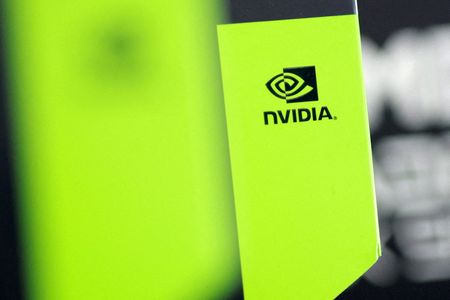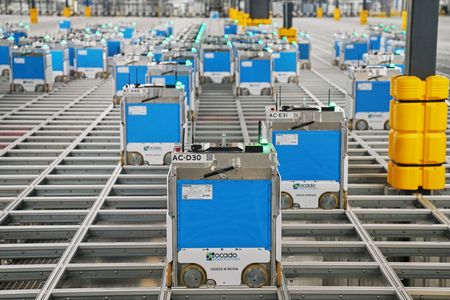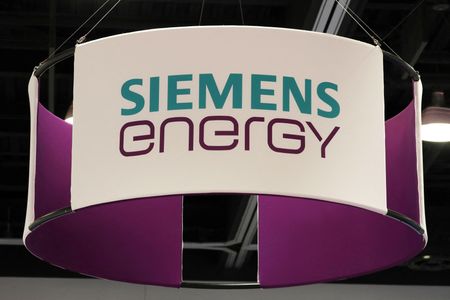By Rashika Singh and Rae Wee
(Reuters) -Global technology shares rallied on Thursday after Nvidia’s blow-out quarterly results signaled that demand for artificial intelligence hardware remains strong even as concerns of the historic boom outpacing fundamentals linger.
The chip bellwether’s stellar results tempered some concerns over a potential AI bubble, although questions about the payoff from the massive spending boom remain.
Nvidia shares were up more than 5% in early trading. If gains hold, the company will add about $243 billion to its market capitalization, which is more than the valuation of some of the major companies on the S&P 500 index, including PepsiCo, and Goldman Sachs.
Bullish spirit lifted many tech stocks around the world, with shares of U.S. chipmakers Advanced Micro Devices and Intel rising about 4% and nearly 3%, respectively. Arm Holdings, Micron Technology and Broadcom were also up between 1.5% and 4%
The European tech index climbed nearly 1%, with ASML gaining more than 2%.
U.S.-listed shares of Taiwan’s TSMC jumped nearly 3%. Across Asia, SK Hynix closed up nearly 2% and Japan’s Nikkei reclaimed the 50,000 mark as chip suppliers and AI-linked stocks surged.
Investors took heart after Nvidia CEO Jensen Huang dismissed bubble concerns, calling demand “incredible” and noting bookings extend into 2026. “We see something very different from a fleeting hype cycle,” he said, pointing to Nvidia’s deep integration across cloud, enterprise and edge computing.
“Amid a swell of concern heading into this print, Nvidia delivered not just solid results and guidance, but a beat-and-raise that was even stronger than most had expected,” J.P.Morgan analysts said.
“In our view, a testament to strong execution across Nvidia’s vast and complex supply chain.”
While some hailed the company’s upbeat results as proof that the AI boom was intact, others worried about external risks tied to its customers’ capex and financing, and challenges surrounding the build-out of data center capacity due to energy constraints and memory chip shortages.
Nvidia is also highly reliant on a handful of customers and the increasingly circular nature of some of its deals has raised concerns as AI startups struggle to turn big profit to justify billions of dollars in funding.
However, Nvidia’s status as the face of the AI revolution has made it the only company in the world to cross the $5 trillion valuation mark, following a surge in its share price of more than 1,190% over the past three years.
Post-earnings gains reversed its November losses, pushing the company’s shares nearly 2% higher for the month. Its stock is up about 39% this year.
Nvidia’s forward price-to-earnings ratio stands at 28.44, below AMD’s 35.70 and far lower than Intel’s 62.38.
The results marked Nvidia’s first acceleration in seven quarters, powered by surging data-center sales. Revenue forecast topped estimates and margins are expected to hold in the mid-70% range through fiscal year 2027.
“Demand still outstrips supply, with hyperscalers and server makers buying aggressively,” said Bob O’Donnell, chief analyst at Technalysis Research.
(Reporting by Rae Wee in Singapore and Rashika Singh in Bengaluru; additional reporting by Arsheeya Bajwa; Editing by Jacqueline Wong, Ronojoy Mazumdar and Anil D’Silva)











